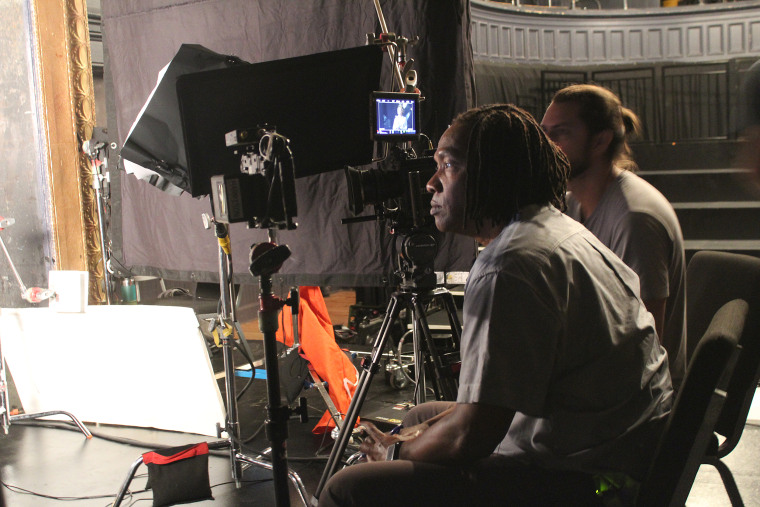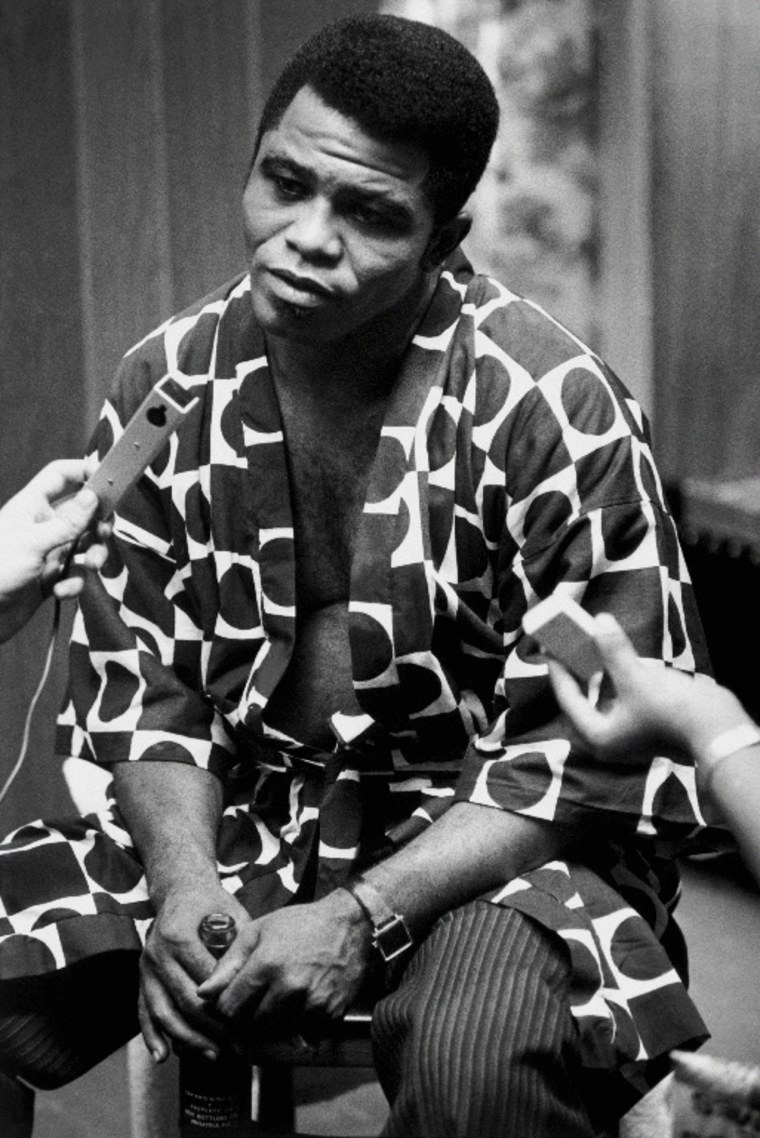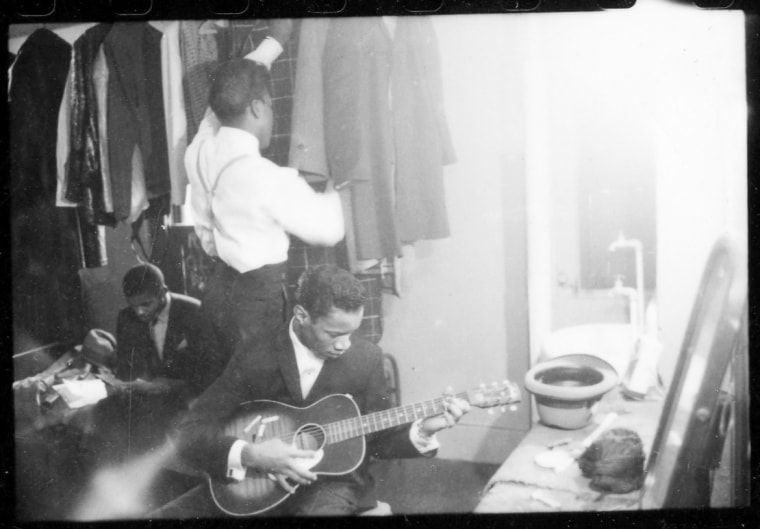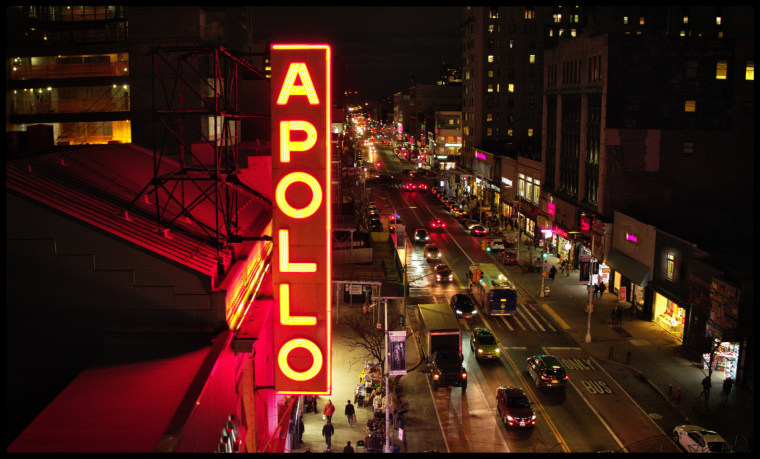Singer Pharrell Williams wasn’t born when the Apollo Theater opened its doors to black entertainers, but he is now a proud part of its extraordinary legacy.
“They paved the way, but they also paid a lot. I don’t know where any of us would be without all those performances on that stage,” Williams says in the HBO documentary, The Apollo. “It’s the beginning of all of it.”
“That Stage,” for almost a century, has been invested with the hopes and dreams of an entire generation of black entertainers.
“The Apollo,” director and producer Roger Ross Williams said, “is a town hall.

For 85 years and counting, the conversation the Apollo has been initiating, engaging in and framing for the Harlem community and beyond is chronicled and celebrated in the film, which is streaming on HBO.
It’s also significant for what producer Lisa Cortes calls the “access,” that the Apollo affords. It cuts both ways, allowing black America to speak to the wider nation and for that wider nation to have a window into black America.
Established in 1934 – it was a “Whites Only” burlesque hall when it first opened in 1914 – at a time when black audiences weren’t allowed in many music halls, even in their own communities to view black talent, the Apollo is synonymous with black entertainment and black excellence.
“When people talked about the Harlem of the Cotton Club and the Savoy,” former congressman and Harlem native Charles B. Rangel recalls, “black folks couldn’t go into these places. I was born in 1930; white folks were going to these places. People forget that Harlem was just a wayward station for former slaves to try to get out of being lynched openly.”
Amateur Night in Harlem, which was produced by the renowned Ralph Cooper and started out as Audition Night in 1934, was the portal through which the greatest talents in music, dance and comedy walked. Ella Fitzgerald was nervous that she could not dance as well as the previous act, The Edward Sisters, who in her words, were “the dancingnest sisters, they stopped the show!” So when she made her debut at the age of 17, she decided to sing. Jimi Hendrix won an Amateur Night at the Apollo in 1964. From Duke Ellington, Louis Armstrong and Fela Kuti to James Brown, Bob Marley and Lauryn Hill (she was booed during her inaugural performance), the cavalcade of artists is astounding.

Harlem-born actress and singer Leslie Uggams, 76, who was nine years old when she began performing on the stage as “Little Leslie Uggams,” recalls in the film, that there was always a tap dancer, a comedian and a star. Among those she worked with were Armstrong, Fitzgerald and Dinah Washington.
“The first person I worked with was Louis Armstrong; he was just a sweetheart,” Uggams said. “I had my little space on stage in the corner, where I would watch every performance that he did. It was like a school. Ella, she had an open door and was always saying to my mother and I to ‘come on in’. There was always tons of food in her dressing room. Dinah Washington had a lot of influence on me too. She would say to me, I always want you to be a lady. And she used to have $100 bills so that when people came back who didn’t make it or needed something … she cared about everybody.”
But while the film does have its fair share of touching remembrances and rose-colored glasses nostalgia - beautiful black and white archival footage and photographs and interviews with those who performed on its stage and those who sat in its audience - interwoven is the contemporary staged reading of Ta-Nehisi Coates’ "Between the World and Me," his booklong love letter to his son. “He is the James Baldwin of our time,” Ross Williams of Coates asserted at a post screening Q&A of the documentary at the Apollo.

The film reminds viewers that the Apollo has always been a space where race matters. After all, though the then-owner pleaded with her not to sing it, Billie Holiday delivered a searing rendition of Strange Fruit, the wrenching ballad of lynching, the prime example of that era’s protest music that has lost none of its potency. And James Brown, who recorded four live albums at the theater, became almost an artist-in-residence with his declaration: “I’m Black and I’m Proud!”
Glossed over are the hard times that befell the theater, most notably in the 1970s through the early ‘90s, as the surrounding community was under siege by drug-fueled violence and it changed ownership more than once. Now run by a nonprofit foundation, it enjoys more than simply a renaissance, as the community around it changes and people see it as an anchor and a beacon.
When asked if there was a mantra for the theater, Apollo Executive Director Kamilah Forbes said, “It’s where American culture is created.”
